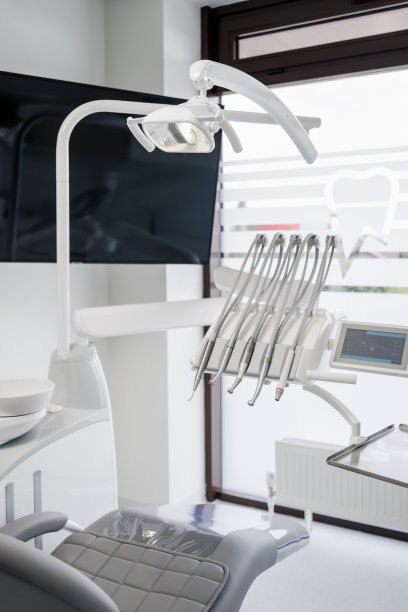Understanding Periodontal Disease Impacts on Overall Health and Effective Prevention Strategies for Long-Term Dental Wellness
Summary: Understanding periodontal disease is crucial for maintaining overall health, as its effects extend beyond oral hygiene and can influence systemic conditions. This article explores the significant relationship between periodontal disease and overall wellness, including its contributions to serious health issues, the importance of early detection, effective prevention strategies, and the role of professional dental care. By adopting these strategies, individuals can enhance their dental wellness and improve their quality of life, ultimately mitigating the risks associated with untreated periodontal disease.
1. The Link Between Periodontal Disease and Overall Health

Periodontal disease, an infection of the gums, has been increasingly recognized for its connection to various systemic conditions. Research indicates that individuals with periodontal disease are at a higher risk of developing chronic illnesses such as heart disease, diabetes, and respiratory issues. This relationship highlights the need for a broader understanding of periodontal health, not just as a dental concern, but as a significant player in our overall well-being.
The inflammatory nature of periodontal disease plays a critical role in these systemic connections. The bacteria present in gum infections can enter the bloodstream and contribute to inflammation throughout the body. This can potentially exacerbate existing conditions or facilitate the development of new ones, thus establishing a cycle of health complications that emphasizes the importance of maintaining oral hygiene.
Furthermore, studies have suggested that managing periodontal disease effectively may lead to better outcomes for patients with chronic illnesses. For instance, individuals with diabetes who control their gum disease often experience improved blood glucose levels, demonstrating the need for integrated care approaches involving both dental and medical health professionals.
2. Importance of Early Detection and Diagnosis
Early detection of periodontal disease is vital for effective treatment and prevention of further complications. Regular dental check-ups can help identify the initial signs of gum disease, such as redness, swelling, or bleeding gums. By detecting these symptoms early, patients can take proactive measures to mitigate their progression and reduce their overall health risks.
Self-assessments at home can also play a crucial role in early detection. Individuals should regularly check their gums for any changes in color, texture, or sensitivity. Additionally, being vigilant about your oral hygiene routine, including brushing twice a day and flossing daily, can help catch potential issues before they escalate.
Moreover, educational initiatives among dental professionals can empower patients with the knowledge needed to recognize warning signs at home. When patients understand what to look for regarding gum health, they are more likely to seek timely dental care, enabling better preventive strategies and management of periodontal disease.
3. Effective Prevention Strategies for Long-Term Dental Wellness
Preventive care is fundamental for maintaining long-term dental wellness and preventing periodontal disease. A well-rounded oral hygiene routine that includes brushing, flossing, and using mouthwash can significantly reduce the plaque buildup that leads to gum disease. It is recommended to brush at least twice daily and floss once a day to maintain optimal gum health.
Additionally, a healthy diet plays an essential role in periodontal disease prevention. Nutrient-rich foods, particularly those high in antioxidants such as fruits and vegetables, can strengthen the immune system and reduce inflammation. Limiting sugary snacks and beverages also minimizes the risk of plaque formation, which is essential for sustaining healthy gums.
Regular professional cleanings and check-ups are critical to ensuring long-term dental wellness. Dentists can remove tartar accumulation that ordinary brushing cannot address, while also providing individualized care and advice. Maintaining a relationship with a professional dental provider encourages consistent monitoring of periodontal health and supports preventive care efforts.
4. The Role of Professional Dental Care
Professional dental care is a cornerstone of effective periodontal disease management. Regular visits to a dentist allow for comprehensive examinations that can detect potential issues early before they develop into serious conditions. Dentists not only perform cleanings but are also skilled in identifying early signs of periodontal disease.
Furthermore, dental professionals offer tailored treatment options for patients who may already be experiencing gum disease. These treatments can range from non-surgical methods, such as scaling and root planing, to more advanced interventions when necessary. Having a personalized treatment plan can make a significant difference in managing periodontal disease effectively.
Education received during dental visits is equally important. Patients can learn about their unique oral health needs and receive specific guidance on how to take care of their gums at home. By integrating professional insights with personal care routines, individuals are more likely to achieve lasting dental wellness and minimize the risk of periodontal disease.
Summary:
In conclusion, understanding the impacts of periodontal disease on overall health is crucial for fostering long-term dental wellness. Emphasizing early detection, effective prevention strategies, and the vital role of professional care can significantly contribute to reducing the risks associated with gum disease. By prioritizing oral health, individuals can not only enhance their dental wellness but also their overall quality of life.
This article is compiled by Vickong Dental and the content is for reference only.



